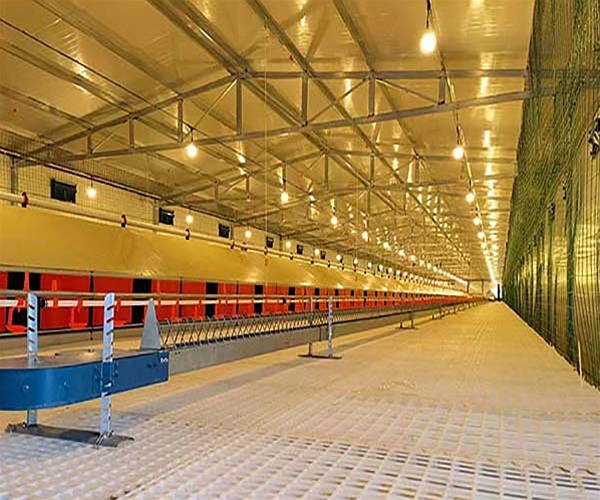Chicken manure fertilizer is a natural fertilizer.With the rapid growth of poultry farming, especially large-scale chicken operations, managing chicken manure has become a key issue. Each year, large amounts of chicken manure produced by the poultry industry not only burden the environment but also negatively impact soil, water, and air quality. However, with rising environmental awareness and technological advancements, recycling chicken manure has become increasingly important. It not only reduces pollution but also provides additional income for poultry farms. In this article, we will explore the many benefits of chicken manure recycling and how it works.
Environmental Hazards of Chicken Manure
Chicken manure contains organic matter, nitrogen, phosphorus, and potassium. If improperly handled, these elements can cause significant pollution:
- Water Pollution: Nitrogen and phosphorus from manure can lead to water eutrophication, which harms aquatic ecosystems and creates “dead zones” in water bodies.
- Soil Acidification: Improper disposal of chicken manure can cause soil acidification. This ultimately damages soil structure and affects crop growth.
- Air Pollution: Ammonia and methane gases from chicken manure degrade air quality. Furthermore, these gases contribute to the greenhouse effect and cause foul odors, worsening environmental conditions.
Therefore, proper disposal and resource utilization of chicken manure are absolutely critical. Fortunately, modern technology offers several efficient ways to recycle chicken manure. As a result, pollution is reduced, and poultry farms can benefit economically.
Ways to Recycle Chicken Manure
- Chicken Manure as Organic FertilizerChicken manure is rich in essential nutrients like nitrogen, phosphorus, and potassium, which makes it an excellent organic fertilizer. After composting, it can improve soil structure and promote crop growth. Additionally, scientific management ensures that harmful substances are removed, which reduces environmental risks.Many farms have already started selling composted chicken manure to agricultural growers. This practice not only reduces pollution but also generates additional income for the farms.
- Biogas Production from Chicken ManureChicken manure is ideal for biogas production through anaerobic fermentation. The biogas produced can then be used for heating, electricity, or cooking. This, in turn, reduces reliance on conventional energy sources and cuts down farm energy costs.Additionally, large poultry farms often set up biogas digesters, which allows them to use chicken manure for producing sustainable energy. This simultaneously solves waste disposal problems while contributing to environmental sustainability.
- Chicken Manure as Animal Feed or Feed AdditivesRecent research shows that chicken manure contains proteins and minerals that can be used in animal feed or as feed additives. Although this is still in development, the potential is enormous, particularly for non-ruminant animals like pigs and fish.As technology continues to improve, chicken manure may become an increasingly valuable resource in the production of animal feed, thus expanding its use across the agricultural industry.
- Chicken Manure as Soil ConditionerIn addition to being used as fertilizer, chicken manure can also serve as a soil conditioner. The organic matter in chicken manure enhances soil aeration, water retention, and fertility. Therefore, it is especially beneficial for poor or over-farmed land.For instance, many agricultural eco-parks and greenhouses use chicken manure to improve soil quality. This, in turn, boosts crop yields and reduces overall production costs.
Economic Benefits
- Cost Savings: Recycling chicken manure reduces the need for chemical fertilizers and energy. For example, biogas production significantly cuts reliance on traditional energy sources. Moreover, using composted manure eliminates the need to purchase chemical fertilizers.
- Increased Income: Recycling chicken manure not only lowers disposal costs but also creates additional income streams. Farms can sell organic fertilizers, biogas, or processed feed, which diversifies their revenue sources.
- Enhanced Brand Image: As consumers are increasingly concerned about sustainability, poultry farms that recycle chicken manure can enhance their eco-friendly reputation. This leads to greater consumer trust and improves market competitiveness.
- Promoting Sustainable Agriculture: Recycling chicken manure supports sustainable farming practices by reducing pollution and contributing to healthy agricultural ecosystems.
Conclusion
Recycling chicken manure reduces environmental pollution and generates significant economic benefits for poultry farms. By embracing modern technologies and scientific management practices, farms can turn waste into a valuable resource. This benefits both the economy and the environment. Furthermore, as global awareness of sustainability continues to grow, recycling chicken manure will play an increasingly crucial role in the future of agriculture. It will contribute to ecological health, agricultural productivity, and long-term sustainability.

